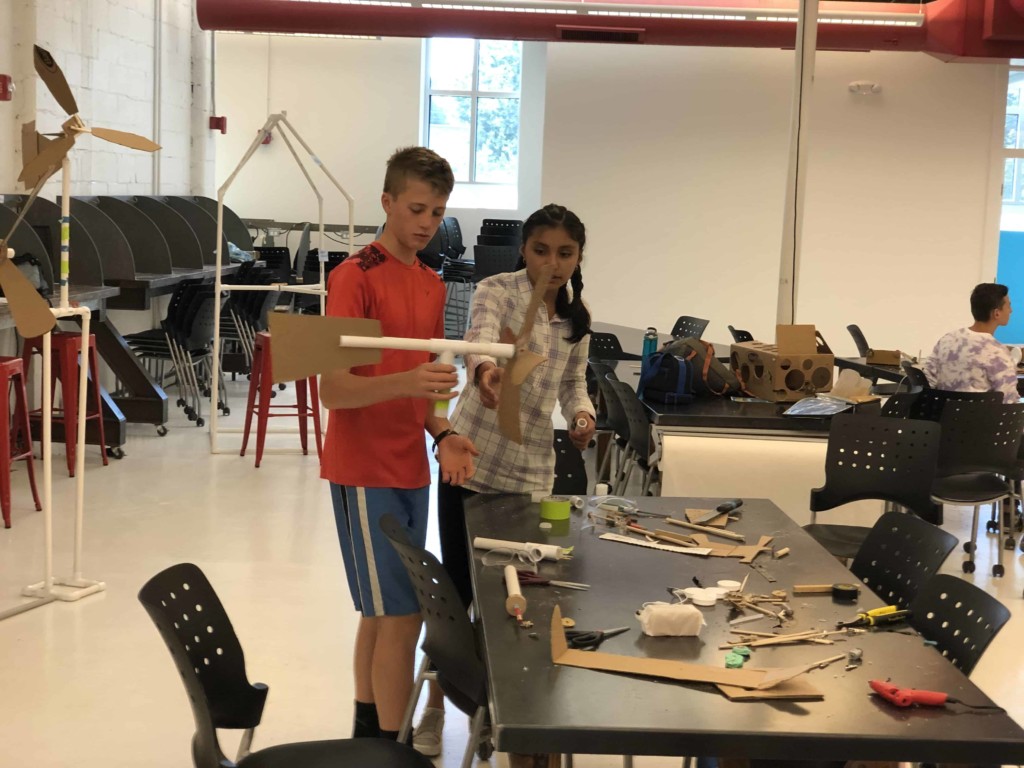Solving Interesting Problems With an Entrepreneurial Mindset

Entrepreneurs are viewed as movers and shakers, people with a high risk threshold and a uniquely strong sense of independence. Oftentimes the marker of an entrepreneur has been conflated with “someone with a good idea” or “someone that just likes starting things.” While that can be an element of what it takes to be entrepreneurial, that is hardly the whole picture and it all but writes out the majority of the population who may benefit from leaning into entrepreneurial tendencies regardless of job title. As the future of the workplace continues to shift, and organizations, as well as their leadership, must encourage lifelong learning and agility, many of the traits that make someone entrepreneurial must be acquired and utilized by employees throughout a company’s structure.
Enter the entrepreneurial mindset. This mindset provides language for a powerful set of skills that enables an employee, partner or stakeholder of any kind to confront challenges by seeking first to understand and add value. With this know-how and confidence, workers of all experience levels will have the necessary agility, independence and problem-solving skills to ride out changes in the workplace and technology, while providing more value as a result of their inclination to solve interesting and important problems. With that said, these skills and habits can take work and time to develop. One initiative built upon supporting the rapidly shifting workforce is SkillRise, a workforce-learning program from the International Society for Technology in Education.
The Network for Teaching Entrepreneurship has developed a framework for an entrepreneurial mindset titled “Entrepreneurial Mindset: Tools for Life,” which calls out the following skills:
- Initiative & Self-Reliance
- Flexibility & Adaptability
- Communication & Collaboration
- Creativity & Innovation
- Critical Thinking & Problem Solving
- Future Orientation
- Opportunity Recognition
- Comfort with Risk
Yes, these skills make for a good leader. But it is possible, and increasingly important, to lead from the bottom, middle—wherever you happen to be. Plus, learning how and when to get creative and recognize opportunity may just make the next steps of your career more impactful.
What this boils down to is that learning is no longer only a students’ game. We must all be able to adapt to technological changes, policy changes and systems changes in order to thrive and maintain steady footing in the workplace. Much of this can be solved by nurturing a spirit of curiosity and continuous personal growth, but familiarity with the entrepreneurial mindset enables us to name inclinations, strengths and places to improve—an essential component to developing a marketable skill set, and one that is not stressed enough. Too often people have a book’s worth of anecdotal life data, but they haven’t had the opportunity to package those stories into a list of marketable skills. Being aware of the various elements of the entrepreneurial mindset can help to better paint a picture of your skills in a more efficient way.
Just because learning is not solely for students doesn’t mean that entrepreneurship does not belong in the classroom. For years now there has been an increased push to provide K-12 students the tools they need to be able to think and act entrepreneurially, and a continued conversation on starting entrepreneurial education earlier and earlier. It comes in many forms: interdisciplinary studies, real-world learning, project-based learning—all are excellent roadmaps for helping students to recognize their inner entrepreneurial traits. Seth Godin defines these opportunities as “interesting problems”.
A big part of being an entrepreneur is identifying a need or a place where value could be added. And while being able to create value and solve problems for others is an important element of identifying opportunity, it is not the whole piece. There is a personal purpose component as well. Arash Asli notes the importance of “revisiting your vision on a daily basis” and that entrepreneurs are defined by an undying passion and discontent with the status quo.
How might organizations better empower their workforce to solve the problems that are interesting to each individual member of their team? How might agency be taught and nurtured in K-12 to create a cohort of workers dedicated to challenging and solving of their own volition? One method could be genius hours, a trend in both the professional world and the educational world alike. With genius hours, leadership sets aside an intentional amount of time every week for employees/students to pursue their passions with hopes of sparking innovation and general workplace morale.
The concept of the entrepreneurial mindset is not meant to be starry-eyed propaganda that we should all quit our day jobs and start pursuing our wildest dreams. It is also not about how everyone needs to be their own boss and large corporations should fall. Rather, it is simply a nudge to take a look around and consider how your current role lends itself to being entrepreneurial.
What’s the most recent interesting problem you’ve identified?
For more, see:
Stay in-the-know with innovations in learning by signing up for the weekly Smart Update.
This post includes mentions of a Getting Smart partner. For a full list of partners, affiliate organizations and all other disclosures, please see our Partner page.








0 Comments
Leave a Comment
Your email address will not be published. All fields are required.